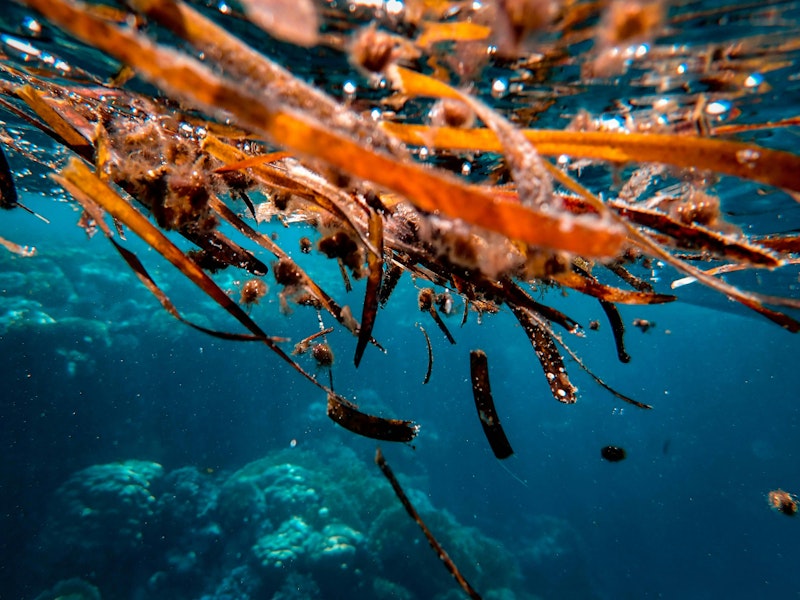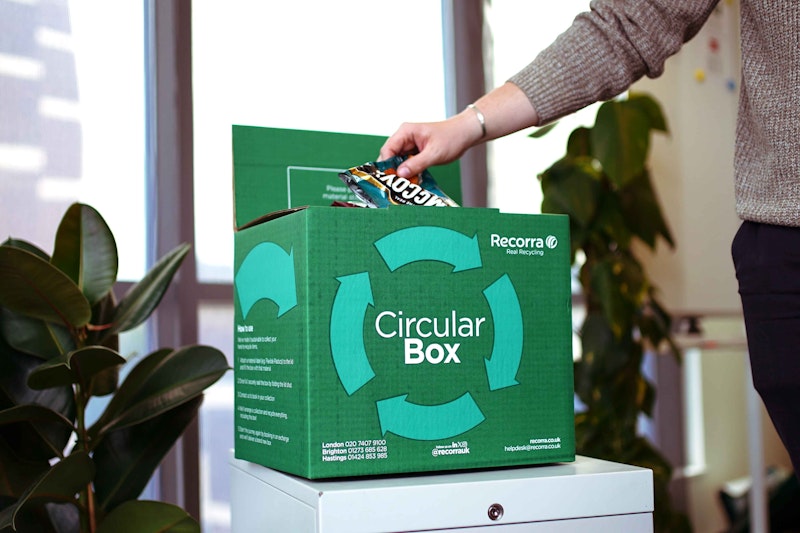July is Plastic-Free Month, a global movement and campaign that brings us together to tackle the pressing issue of plastic pollution. Whilst plastic is often villainised, it has revolutionised almost every aspect of modern-day life; unfortunately, its low cost means it is often used as a disposable material that significantly impacts our planet.In 2019 alone, 6.1 million tonnes of plastic waste leaked into rivers, lakes and oceans; and only around 9% of all plastic is recycled. With a particular focus on reducing single-use plastic, Plastic Free July aims to lessen plastic use as much as possible, to reduce its impact on the planet. Today, we’ll be exploring the issue of plastic, whether ‘plastic-free’ is even possible, and how Recorra can help your business better manage your plastic waste and reduce your business’ carbon footprint.
What does it mean to be plastic-free?
Embracing a plastic-free lifestyle involves making conscious choices to reduce or eliminate the use of plastic in our daily lives, opting instead for sustainable, reusable, and biodegradable alternatives. With plastic so ingrained in our daily lives, it can feel overwhelming to think about all that needs to change. But, there are small changes we can make to each workplace to help us do this.
Why is it better to avoid plastic?
Plastic waste causes harm to marine life, often leading to entanglement and suffocation of aquatic animals. Many plastic products contain additives that can be harmful to humans; for example, BPA is a chemical released as certain plastics degrade and has been linked to insulin resistance, inflammation, heart disease, and adverse effects on brain development and fertility.
The impact of microplastics (particles less than 5mm in length) is still being studied, but initial findings suggest they pose significant health and ecological risks. Even more concerning are nanoplastics. These tiny plastics have been found in various organs and have been found to promote the spread of antibiotic-resistant genes, potentially contributing to cancer and inflammation in the body (studies are still very new).
Additionally, plastics take hundreds to thousands of years to degrade, meaning they persist in the environment for extremely lengthy periods. For these reasons, it is imperative to address the plastic problem and find alternative solutions.
What are the material solutions to plastic?
Several innovative materials are emerging as viable alternatives to plastic, including seaweed and compostable packaging, which we recycle for our customers. Aluminium is increasingly being adopted for packaging, with canned water becoming more commonplace. Sustainable and effective alternatives to plastic are not only possible but are already being implemented.

Is it even possible to be plastic free?
While the idea of a completely plastic-free world is appealing, achieving this goal presents several challenges. For example, in some field’s plastic seems necessary. In medicine, for example, plastics have provided immense benefits in preventing contamination and the spread of infectious diseases. Essential medical tools such as syringes, surgical gloves, and IV tubes are often single use by necessity to ensure sterility and prevent infections. Finding alternatives with the same properties is difficult, though not impossible; for instance, medical-grade paper offers a sustainable alternative for medical packaging.While eliminating all plastics from our lives is challenging, significant strides can be made in reducing plastic use. By looking to technology and adopting innovative solutions, we can slowly but surely move towards a more plastic-free future.
What about plastic waste? Can we get rid of plastic entirely?
On a global scale, the issue seems overwhelming; but we believe that small actions ultimately make a big impact. By lessening the demand for plastic products we can greatly reduce plastic production, but what about the plastic that is already polluting the environment?Fortunately, there is hope, and there are promising approaches to tackle the issue. One innovative solution involves the use of fungi and bacteria that can consume and break down plastic. For example, a biotech engineer at Biohm discovered that the fungi she was studying could eat through a plastic sponge, indicating its potential for biodegradation.Whilst eliminating plastic from our world is a complex challenge, these solutions offer hope for reducing existing plastic waste and mitigating its impact on the environment. And that is where we come in, too; by combining preventative measures with effective waste management strategies, we can move closer to a plastic-free environment.

How can I reduce plastic in the workplace?
- Audit your plastic usage. Identify common sources of plastic waste, such as packaging, office supplies, and disposable items. This is something we do for our customers.
- Reduce single-use plastics e.g. stirrers and coffee cups
- Recycle flexible plastics, too. These hard-to-recycle plastics are exactly that; tricky to deal with, and they take up a lot of space in general waste. The Recorra Circular Box was designed to capture these items, such as crisp packets and plastic packaging.
- Switch to sustainable stationery. Our Office Supplies department helps our customers procure plastic-free and recycled stationery supplies for the workplace.
What have Recorra and our clients done to tackle plastic pollution?
We go above and beyond our Dry Mixed Recycling service, by recycling more than just hard plastics. The Recorra Circular Box was designed to capture traditionally hard-to-recycle items, such as flexible plastics, diverting this material from general waste. These plastics are recycled entirely within the UK to create Stormboard™, at the only facility that can recycle post-consumer flexible plastics. Read more about this service here.Our Sustainability Engagement Team also holds regular beach cleans to prevent plastic waste from entering the River Thames. This is a great community-centered activity; good for the environment, but also good fun for us. Contact your Account Manager to book one in with your team!
Plastic pollution is a critical issue that demands immediate attention from businesses around the world. Participating in initiatives like Plastic-Free July is an excellent starting point, but sustained efforts are required to make a significant impact. By understanding the profound effects of plastic on our environment and health, businesses can take proactive steps to reduce their plastic footprint.
